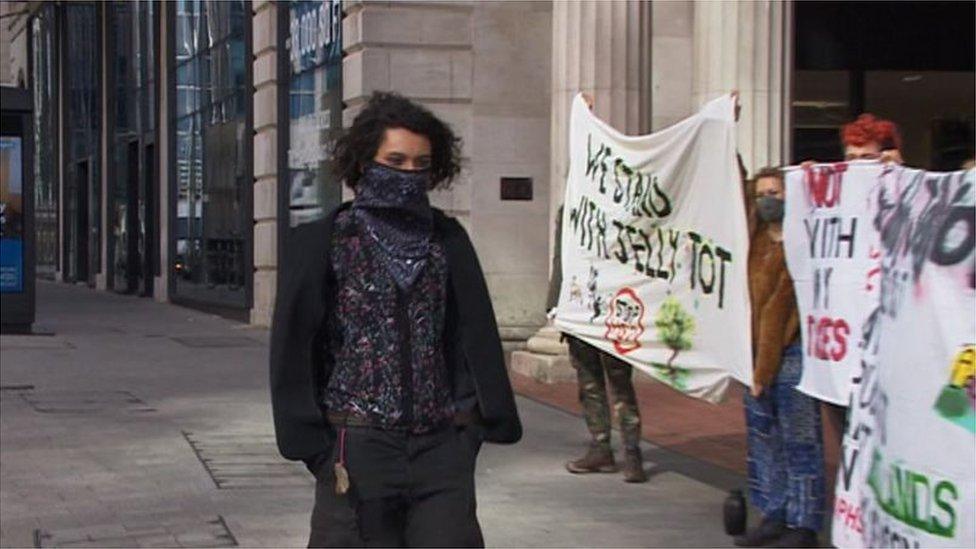Acquitted HS2 protester in Lichfield 'should be convicted'
- Published

Elliott Cuciurean (archive image) dug a tunnel on farmland in Staffordshire
An HS2 protester cleared of a trespassing offence after tunnelling under land linked to the project should be convicted, High Court judges ruled.
Elliott Cuciurean dug and occupied a tunnel on farmland in Hanch, Lichfield, Staffordshire, in March last year.
The director of public prosecutions has appealed against his acquittal, following a trial in September.
Judges said it was "immaterial" land targeted by a protest was only a small part of the HS2 high-speed rail scheme.
They stated Mr Cuciurean, who had been acquitted of aggravated trespass, should be remitted to magistrates with "a direction to convict" him.
Following a trial at City of London Magistrates' Court in September, a judge concluded prosecutors had not made her sure a conviction was a "necessary and proportionate interference" with his rights to freedom of expression and freedom of peaceful assembly under Articles 10 and 11 of the European Convention on Human Rights (ECHR).
This was despite costs of removing him and other protesters over three days reaching about £195,000.
Lawyers for Mr Cuciurean had relied on a June ruling by the Supreme Court, which overturned convictions of four protesters who were charged with obstruction of the highway, after locking themselves together outside an arms fair in 2017.
They argued the judgment raised the issue of whether a "proportionality test" should be used in cases of non-violent protest - where potential conviction is weighed against its impact on article 10 and 11 rights.
The director of public prosecutions appealed against the acquittal, with the original judge asking the High Court to rule over whether applying the Supreme Court judgment allowed her to acquit him.
She also asked whether she was entitled to take into account "the very considerable costs of the whole HS2 scheme and the length of time that is likely to take to complete" when deciding if a conviction was necessary.
Lord Chief Justice Lord Burnett, sitting with Mr Justice Holgate, said the answers to these questions were "no".
They concluded the ECHR rights "do not sanction a right to use guerrilla tactics endlessly to delay and increase the cost of an infrastructure project which has been subjected to the most detailed public scrutiny".

Follow BBC West Midlands on Facebook, external, Twitter, external and Instagram, external. Send your story ideas to: newsonline.westmidlands@bbc.co.uk, external